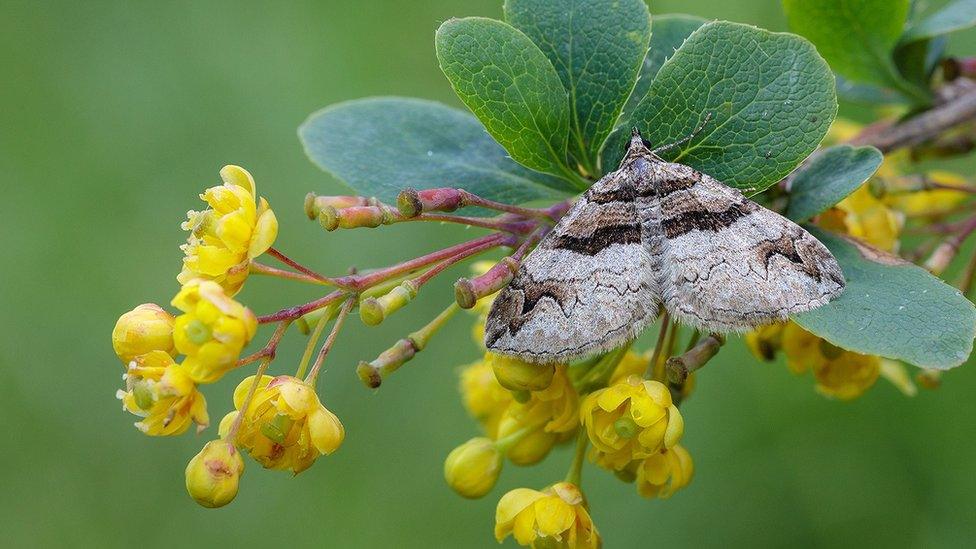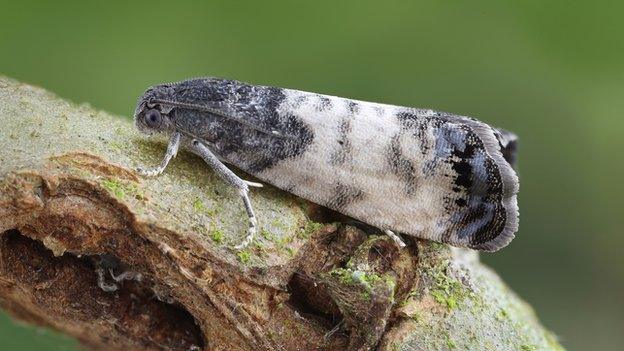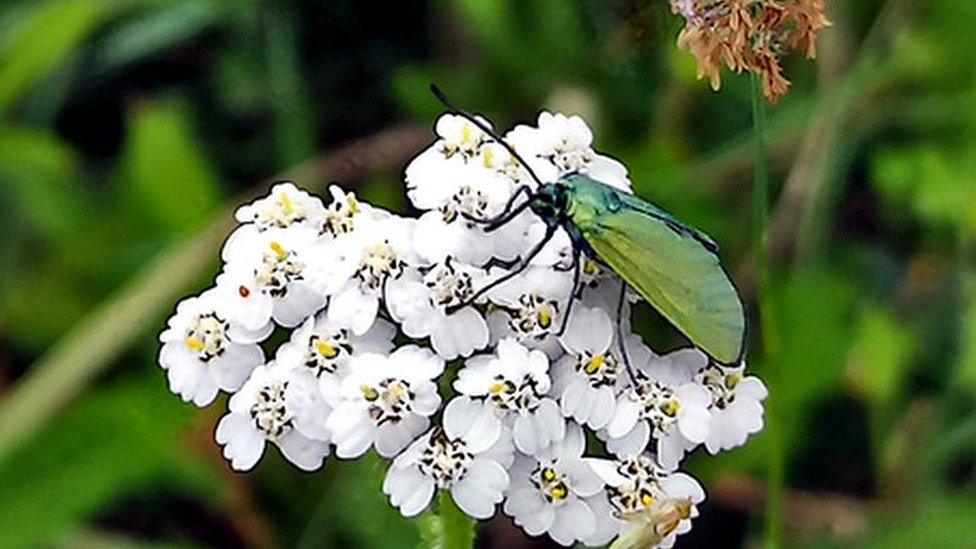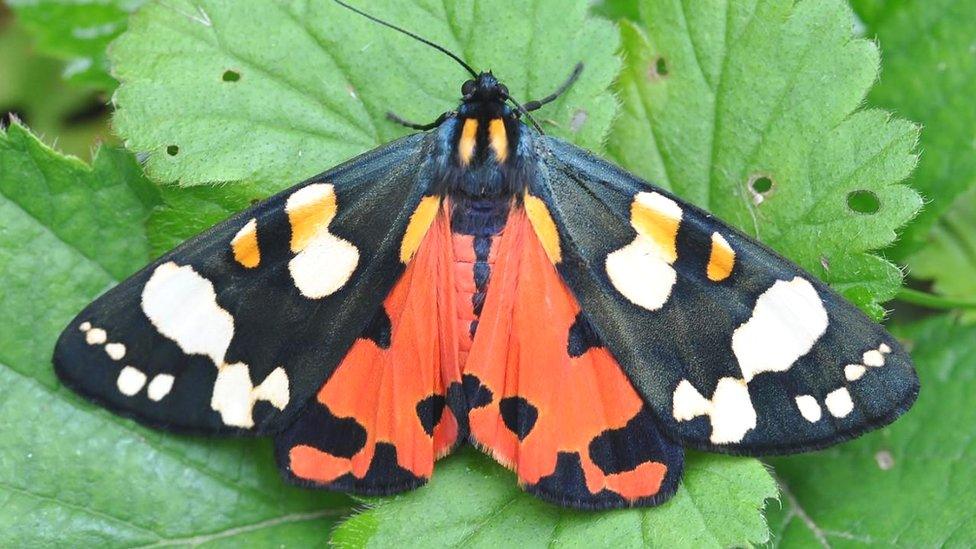Endangered moth sees resurgence in Blandford Forest
- Published

Barberry carpet moth caterpillars rely solely on native barberry for food
An endangered moth has seen a resurgence in part of Dorset following a project to restore its habitat.
The barberry carpet moth is one of the UK's rarest invertebrate species with only 12 known populations.
The replanting of native barberry in Blandford Forest has resulted in an increase in the number of larvae found there, from 14 in 2018 to 50 this year.
The Forestry England and Butterfly Conservation project has been carried out with the help of volunteers.
Caterpillars of the barberry carpet moth depend on common barberry - Berberis vulgaris - for survival but it was cleared from hedgerows during the 19th century because it was thought to be a host for wheat rusk fungus.
Now modern wheat strains are resistant to the disease and the project to replant the slow-growing native species aims to improve the moth's existing habitat and create more areas for it to thrive.
Forestry England wildlife ranger Mark Warn said: "We've done an awful lot of work to plant in more barberry to improve the lot for this particular species.
"They are incredibly beautiful they are only 27-32mm wingspan but they are beautifully marked.
"A lot of the conservation work we've done is rebuilding species resilience so we haven't just got one site, we've got a number of sites across Blandford Forest.
"It's an incredible increase what we hope to do is link that through the forest."
Conservationist Mark Parsons, who carried out the survey, said: "This year's fantastic result clearly demonstrates what can be achieved by working together with relatively little, but regular and annual resources... with larvae found on nearly every bush looked at during this year's survey."

Follow BBC South on Facebook, external, Twitter, external, or Instagram, external. Send your story ideas to south.newsonline@bbc.co.uk, external.
- Published20 July 2022

- Published22 July 2021

- Published8 July 2021
